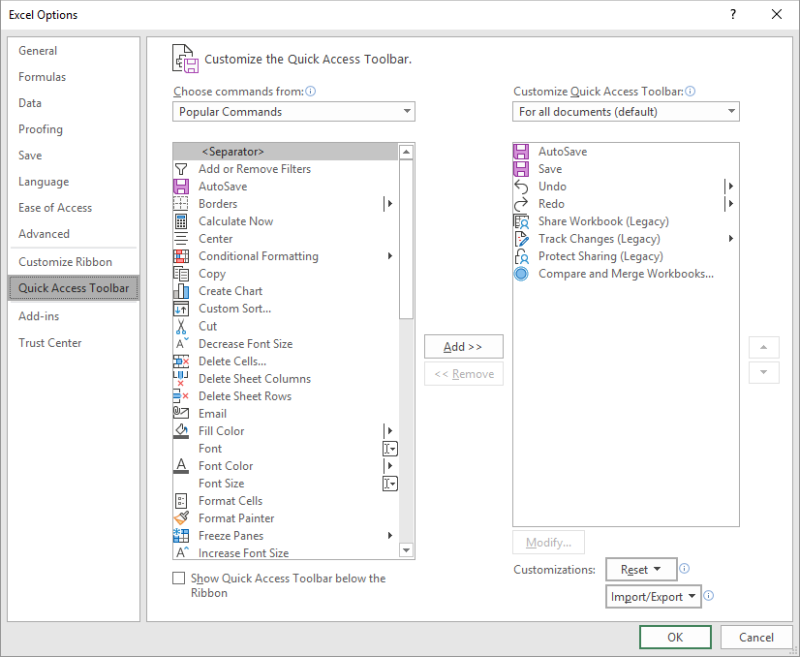Please Note: This article is written for users of the following Microsoft Excel versions: 2007, 2010, 2013, 2016, 2019, 2021, and Excel in Microsoft 365. If you are using an earlier version (Excel 2003 or earlier), this tip may not work for you. For a version of this tip written specifically for earlier versions of Excel, click here: Removing All Formatting.
Written by Allen Wyatt (last updated August 27, 2022)
This tip applies to Excel 2007, 2010, 2013, 2016, 2019, 2021, and Excel in Microsoft 365
If you want to remove all the formatting from a cell, there are a number of techniques you can use. One way is to use the Format Painter. If there is an "unformatted" cell close to the one from which you want the formatting removed, just select the unformatted cell and click on the Format Painter tool. Then click on the cell you want to be unformatted, and that should do the trick.
Another method is to select the cell or cells, display the Home tab of the ribbon, click Clear in the Editing group. Excel displays a submenu from which you can select Formats.
You can also remove formatting by using the built-in styles in Excel. Select the cells and display the Home tab of the ribbon. In the Styles group click Normal. The formatting of the cell is returned to whatever is defined as "normal" for your worksheet.
If you prefer to use a single tool to remove formatting, you can customize Excel by adding a special tool to the Quick Access Toolbar. Follow these steps:

Figure 1. The Quick Access Toolbar area of the Excel Options dialog box.
With the new tool in place, you can remove formatting by selecting the cells you want to affect and then clicking the tool.
ExcelTips is your source for cost-effective Microsoft Excel training. This tip (6753) applies to Microsoft Excel 2007, 2010, 2013, 2016, 2019, 2021, and Excel in Microsoft 365. You can find a version of this tip for the older menu interface of Excel here: Removing All Formatting.

Best-Selling VBA Tutorial for Beginners Take your Excel knowledge to the next level. With a little background in VBA programming, you can go well beyond basic spreadsheets and functions. Use macros to reduce errors, save time, and integrate with other Microsoft applications. Fully updated for the latest version of Office 365. Check out Microsoft 365 Excel VBA Programming For Dummies today!
When adjusting column width, Excel can add an extra line to some cells. This behavior seems to be related to the text ...
Discover MoreYou can spend a lot of time getting the formatting in your worksheets just right. If you want to protect an element of ...
Discover MoreWhen you are formatting your worksheet, Excel lets you easily merge adjacent cells together. If you want to wrap the text ...
Discover MoreFREE SERVICE: Get tips like this every week in ExcelTips, a free productivity newsletter. Enter your address and click "Subscribe."
There are currently no comments for this tip. (Be the first to leave your comment—just use the simple form above!)
Got a version of Excel that uses the ribbon interface (Excel 2007 or later)? This site is for you! If you use an earlier version of Excel, visit our ExcelTips site focusing on the menu interface.
FREE SERVICE: Get tips like this every week in ExcelTips, a free productivity newsletter. Enter your address and click "Subscribe."
Copyright © 2026 Sharon Parq Associates, Inc.
Comments